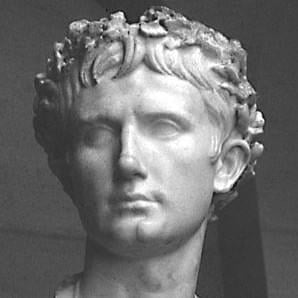
The Fourth Book Of The Odes Of Horace (Chap. 9) Quintus Horatius Flaccus (Ft. C. Smart)
На этой странице вы найдете полный текст песни "The Fourth Book Of The Odes Of Horace (Chap. 9)" от Quintus Horatius Flaccus (Ft. C. Smart). Lyrxo предлагает вам самый полный и точный текст этой композиции без лишних отвлекающих факторов. Узнайте все куплеты и припев, чтобы лучше понять любимую песню и насладиться ею в полной мере. Идеально для фанатов и всех, кто ценит качественную музыку.

Ode IX
To Marcus Lollius
Lest you for a moment imagine that those words will be lost, which I, born on the far-resounding Aufidus, utter to be accompanied with the lyre, by arts hitherto undivulged—If Maeonian Homer possesses the first rank, the Pindaric and Cean muses, and the menacing strains of Alcaeus, and the majestic ones of Stesichorus, are by no means obscure: neither, if Anacreon long ago sportfully sung any thing, has time destroyed it: even now breathes the love and live the ardors of the Aeolian maid, committed to her lyre. The Lacedaemonian Helen is not the only fair, who has been inflamed by admiring the delicate ringlets of a gallant, and garments embroidered with gold, and courtly accomplishments, and retinue: nor was Teucer the first that leveled arrows from the Cydonian bow: Troy was more than once harassed: the great Idomeneus and Sthenelus were not the only heroes that fought battles worthy to be recorded by the muses: the fierce Hector, or the strenuous Deiphobus were not the first that received heavy blows in defense of virtuous wives and children. Many brave men lived before Agamemnon: but all of them, unlamented and unknown, are overwhelmed with endless obscurity, because they were destitute of a sacred bard. Valor, uncelebrated, differs but little from cowardice when in the grave. I will not [therefore], O Lollius, pass you over in silence, uncelebrated in my writings, or suffer envious forgetfulness with impunity to seize so many toils of thine. You have a mind ever prudent in the conduct of affairs, and steady alike amid success and trouble: you are an avenger of avaricious fraud, and proof against money, that attracts every thing; and a consul not of one year only, but as often as the good and upright magistrate has preferred the honorable to the profitable, and has rejected with a disdainful brow the bribes of wicked men, and triumphant through opposing bands has displayed his arms. You can not with propriety call him happy, that possesses much; he more justly claims the title of happy, who understands how to make a wise use of the gifts of the gods, and how to bear severe poverty; and dreads a reproachful deed worse than death; such a man as this is not afraid to perish in the defense of his dear friends, or of his country.
To Marcus Lollius
Lest you for a moment imagine that those words will be lost, which I, born on the far-resounding Aufidus, utter to be accompanied with the lyre, by arts hitherto undivulged—If Maeonian Homer possesses the first rank, the Pindaric and Cean muses, and the menacing strains of Alcaeus, and the majestic ones of Stesichorus, are by no means obscure: neither, if Anacreon long ago sportfully sung any thing, has time destroyed it: even now breathes the love and live the ardors of the Aeolian maid, committed to her lyre. The Lacedaemonian Helen is not the only fair, who has been inflamed by admiring the delicate ringlets of a gallant, and garments embroidered with gold, and courtly accomplishments, and retinue: nor was Teucer the first that leveled arrows from the Cydonian bow: Troy was more than once harassed: the great Idomeneus and Sthenelus were not the only heroes that fought battles worthy to be recorded by the muses: the fierce Hector, or the strenuous Deiphobus were not the first that received heavy blows in defense of virtuous wives and children. Many brave men lived before Agamemnon: but all of them, unlamented and unknown, are overwhelmed with endless obscurity, because they were destitute of a sacred bard. Valor, uncelebrated, differs but little from cowardice when in the grave. I will not [therefore], O Lollius, pass you over in silence, uncelebrated in my writings, or suffer envious forgetfulness with impunity to seize so many toils of thine. You have a mind ever prudent in the conduct of affairs, and steady alike amid success and trouble: you are an avenger of avaricious fraud, and proof against money, that attracts every thing; and a consul not of one year only, but as often as the good and upright magistrate has preferred the honorable to the profitable, and has rejected with a disdainful brow the bribes of wicked men, and triumphant through opposing bands has displayed his arms. You can not with propriety call him happy, that possesses much; he more justly claims the title of happy, who understands how to make a wise use of the gifts of the gods, and how to bear severe poverty; and dreads a reproachful deed worse than death; such a man as this is not afraid to perish in the defense of his dear friends, or of his country.
Комментарии (0)
Минимальная длина комментария — 50 символов.












